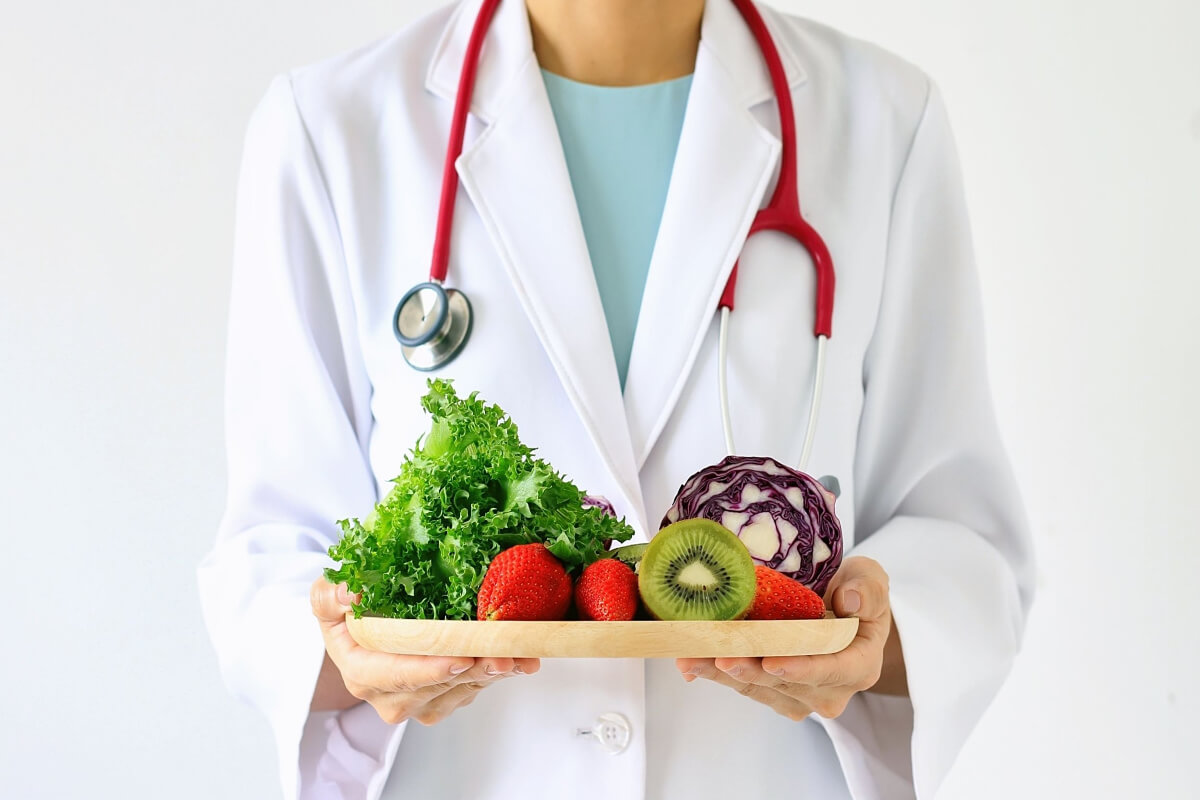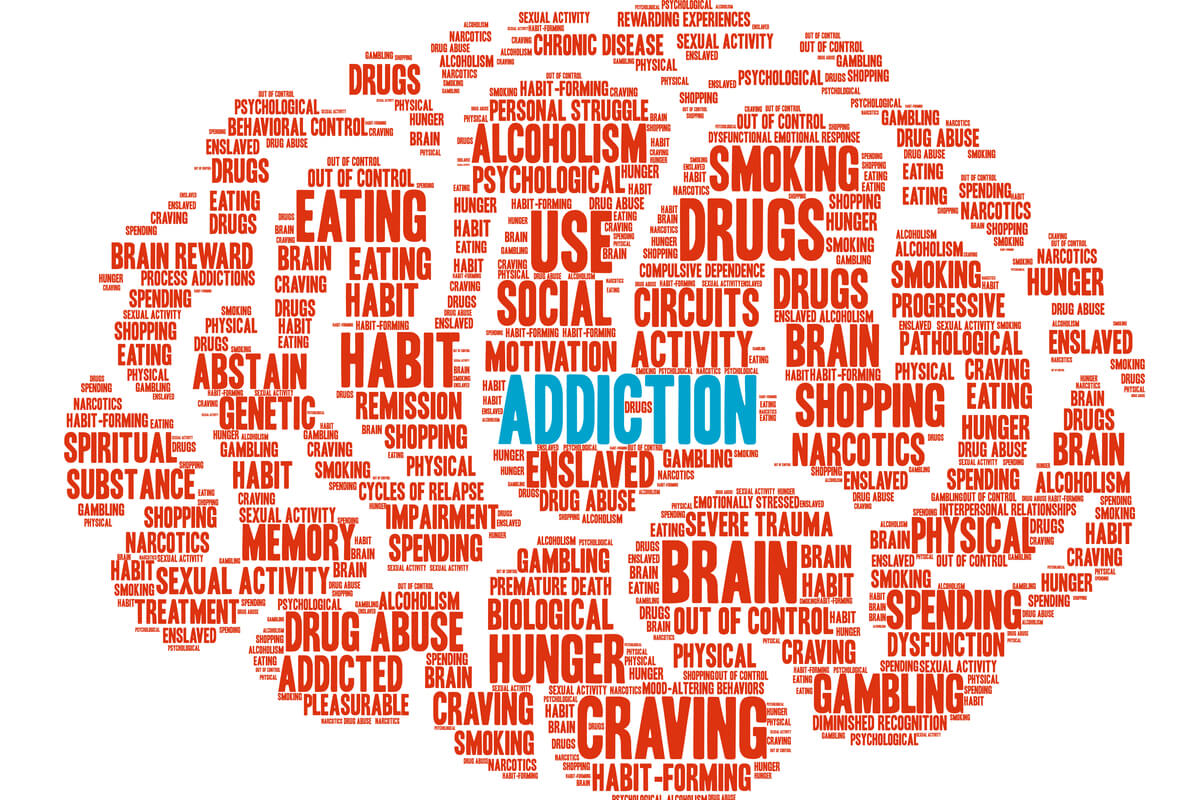
Some forms of substance misuse can alter your appetite, metabolism, or both. When you enter recovery, you may feel too weak and unfocused to participate in treatment. Previously, you may spend all of your time getting and using drugs rather than planning meals. This chaotic lifestyle can lead to nutritional deficiencies.[1] Nutritional support plays an important role in your recovery. Here’s what you need to know about this important part of your treatment.
Specific Substances and Their Relationship with Nutrition
Any drug can change your relationship with food. Different substances have different effects on appetite, and put you at risk for different nutritional deficiencies. Learn more about the connection between nutrition and specific substances of misuse below:
Alcohol
Alcohol is very caloric and heavy in sugar, which means it can cause people to gain weight and even put you at risk for developing or worsening diabetes.
At the same time, patients with severe AUD are often drinking so much that they are not eating, and can be at risk for several vitamin and nutrient deficiencies, specifically vitamin B12, thiamine, and folic acid. This can lead to neuropathy, fatigue, anemia and multiple other medical problems. [2] Many people with advanced alcoholism are severely deficient in B vitamins and may require oral supplementation while they recover.
Marijuana
People joke about marijuana’s appetite-boosting properties. Anyone who has mentioned the need for munchies during a binge knows that the drug can make you hungry.
But marijuana can also cause chronic vomiting, and people with this condition may be severely malnourished.[3] The foods you eat while you’re high may also be dense in calories and sugar, but they don’t give your body the fuel you need to stay healthy.
Opioids
Opiates like heroin and opioids like Vicodin slow down your gastrointestinal tract. putting patients on opioids at risk for developing constipation.[4] In rare instances, this constipation can be severe enough to cause bowel obstruction, which is a medical emergency.
Stimulants
Illicit stimulants like cocaine, and prescription stimulants like Ritalin, tend to suppress appetite. In fact, individuals with anorexia and other eating disorders often use stimulant medications to suppress their appetites, which can be quite dangerous. [5]
How Nutrition Helps With Recovery
We know that food is medicine. If you are malnourished and trying to recover, you can be at a disadvantage. Being well nourished means feeling better overall, giving you the physical and mental strength to focus on recovery. [7]
When you’re dealing with a dietary deficiency, you can feel depressed, anxious, and fatigued.[6] All of these states increase your relapse risk and make it harder to focus on recovery. A healthy meal plan can ensure you feel well enough to focus fully on your recovery.
Nutrition Guidelines for Addiction Recovery
Your nutrition needs may vary depending on the substances you are recovering from and your health history. In general, some common foods that support recovery from a substance use disorder include:[6]
- Carbohydrates: Bread, beans, pasta, and other carbs help your body produce serotonin. You’ll feel happy and stable after a meal filled with these substances.
- Low-fat foods: Snacks high in fat can boost inflammation, which harms cell healing. Fatty foods can also leave you feeling depressed.
- Omega-3 foods: Fish, nuts, and other foods filled with omega-3 fatty acids can reduce inflammation and help your brain cells to communicate.
- Liquids: Hydrating substances like water and tea help flush remaining drugs from your system. These substances can also help to counteract dehydration from vomiting and digestive upset.
Recovery and A Changing Relationship to Food
People in recovery often eat differently than they did while they were actively using. People in recovery might gain weight, as eating becomes a substitute for drug use.[8] It is very common, for example, for patients who quit smoking to start eating more because their appetite is suddenly less suppressed.
Eating disorders and substance use disorders often coexist. Up to 72% of young women with alcohol use disorder also have an eating disorder .[6] Therefore, it is important to pay attention to your eating habits and how they may change, for better or for worse, as you are going through the recovery process. Reach out to your treatment team if you notice changes in your diet, appetite, or relationship with food while you are working toward recovery.

By Elena Hill, MD, MPH
Elena Hill, MD; MPH received her MD and Masters of Public Health degrees at Tufts Medical School and completed her family medicine residency at Boston Medical Center. She is currently an attending physician at Bronxcare Health Systems in the Bronx, NY where ... Read More
- Nutritional Status and Eating Habits of People Who Use Drugs and/or Are Undergoing Treatment for Recovery: A Narrative Review. Nutrition Reviews. https://www.ncbi.nlm.nih.gov/pmc/articles/PMC8114851/. June 2021. Accessed May 2022.
- Alcohol Can Lead to Malnutrition. Michigan State University. https://www.canr.msu.edu/news/alcohol_can_lead_to_malnutrition. Accessed May 2022.
- Heavy Cannabis Use Associated With Wernicke’s Encephalopathy. Cureus. https://www.ncbi.nlm.nih.gov/pmc/articles/PMC6741376/. July 2019. Accessed May 2022.
- Opioid-Induced Constipation. National Library of Medicine. https://www.ncbi.nlm.nih.gov/books/NBK493184/. August 2021. Accessed May 2022.
- The Skinny on Cocaine: Insights Into Eating Behavior and Body Weight in Cocaine-Dependent Men. Appetite. https://www.ncbi.nlm.nih.gov/pmc/articles/PMC3863945/. December 2013. Accessed May 2022.
- Substance Abuse and Nutrition. Today's Dietitian. https://www.todaysdietitian.com/newarchives/120914p44.shtml. December 2014. Accessed May 2022.
- Substance Abuse Recovery and Diet. National Library of Medicine. https://medlineplus.gov/ency/article/002149.htm. Accessed May 2022.
- The Benefits of Nutritional Support in Addiction Recovery. Mental Health Connecticut. https://www.mhconn.org/uncategorized/the-benefits-of-nutritional-support-in-addiction-recovery/. October 2015. Accessed May 2022.
Download Our Free Program Guide
Learn about our program, its effectiveness and what to expect
Related articles
Imagine what’s possible on the other side of opioid use disorder.
Our science-backed approach boasts 95% of patients reporting no withdrawal symptoms at 7 days. We can help you achieve easier days and a happier future.








